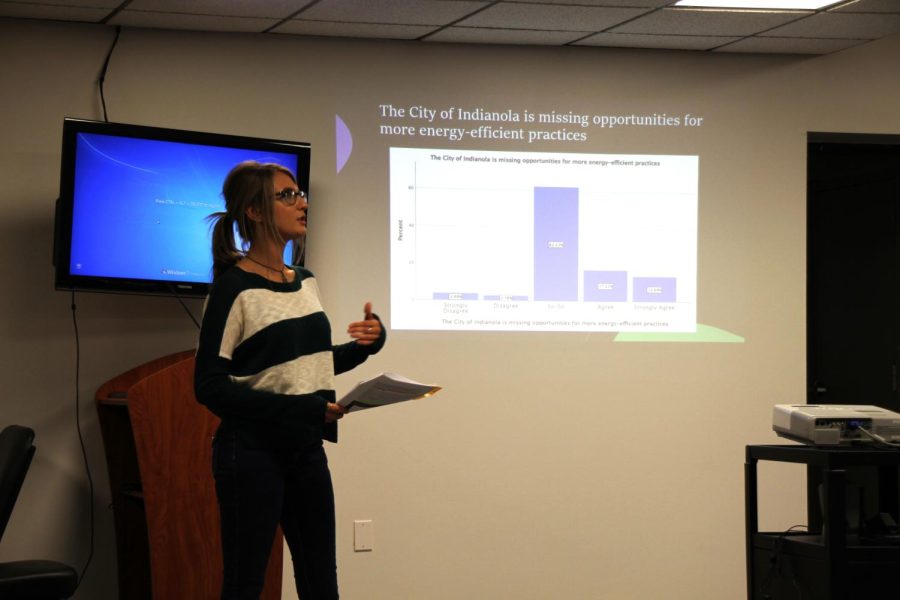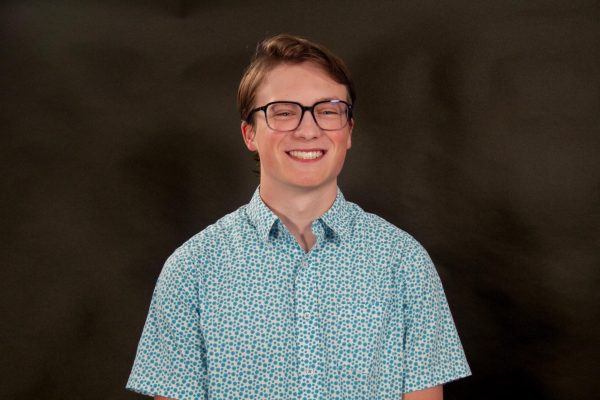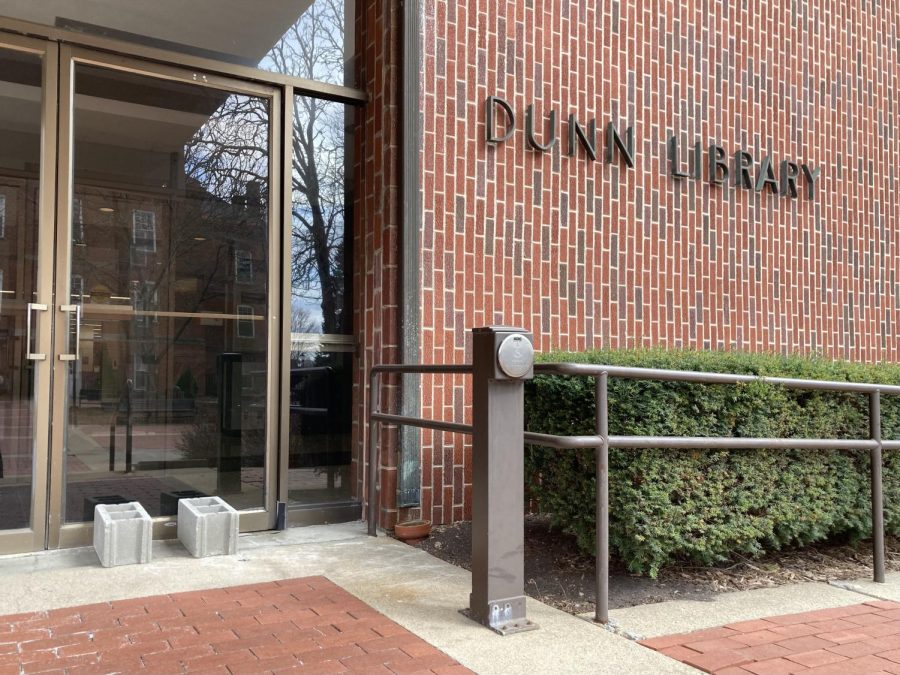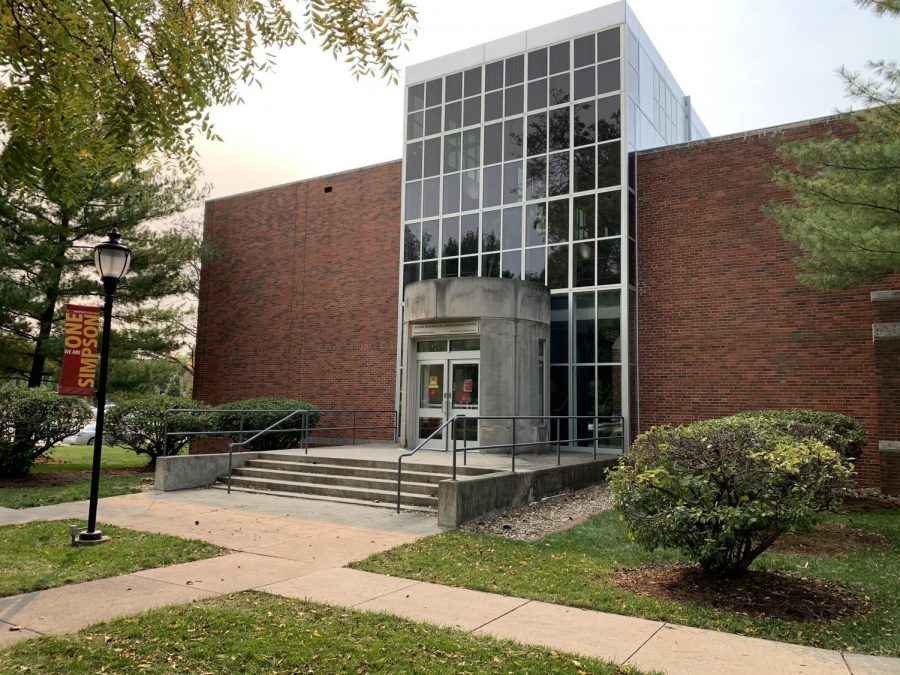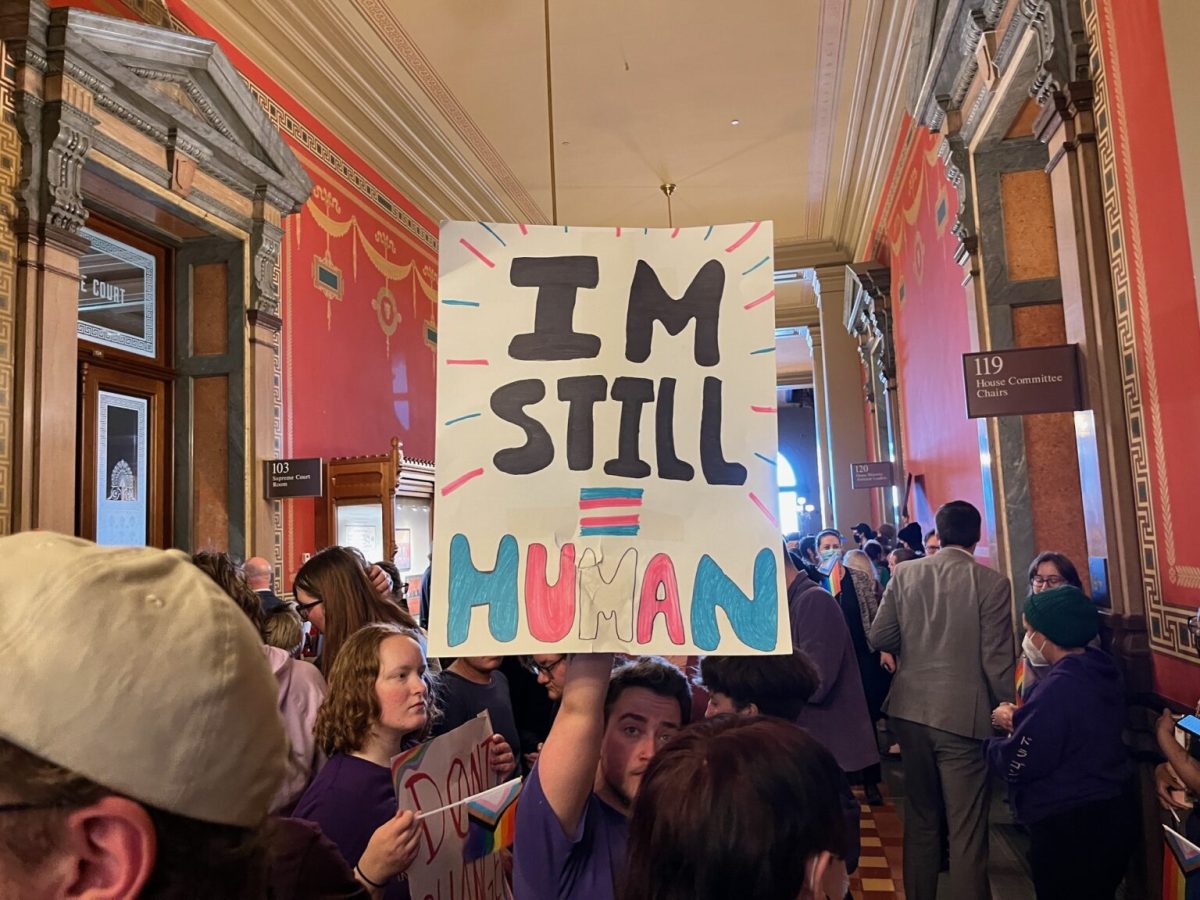Growing sustainability in the Indianola community
Currently, there is a project working with water quality that philosophy professor John Pauley and assistant biology professor Aswati Subramanian are leading students in.
October 12, 2022
In an ongoing partnership with the Indianola Sustainability Committee, senior sociology student Lexi Johnston and professor of sociology Mark Freyberg went to speak at the Indianola town hall on Oct. 6.
Philosophy professor John Pauley is on the committee and acts as a liaison between the two groups.
The group presented research that originated from a survey that was sent out to 5,000 Indianola Municipal Utilities (IMU) customers back in 2019. For reference, Indianola’s population is approximately 16,000. Of the 5,000 sent out, 198 were sent back to the researchers.
“They [the committee] want to know how to draw the citizens of Indianola. How to help the citizens of Indianola conserve energy and move toward renewable energy,” Freyberg said.
Johnston got involved with the project through one of Freyberg’s classes in 2021. Freyberg was looking for a student able to do the qualitative research at the time and was only ever able to recruit her for that part of the project.
Over the years, the project was worked on, and students came and went. Initially, there were no psychology or sociology students working on the project for qualitative research, but by the time of the presentation, Johnston was the only one left.
“I decided, well, I can do this first assignment or the second task, and I was still the only one there after a few weeks, and I was just committed and interested,” Johnston said.
Because of the long period of time this project took place, the original survey questions didn’t make the most sense to the group trying to draw any conclusions. This posed a challenge.
“We have to make it mean something in a way that’s useful for the sustainability committee. When we’re not even sure what the original authors were thinking when they crafted this series of questions, it was hard for us to bridge that gap,” Johnston said.
The key takeaways that Johnston and Freyberg had were that participants wanted to know more about power-saving initiatives and that they care about the sustainability issues being discussed.
When the two finished their presentation, they discussed possible solutions with the committee. Ideas like a shared cost to help ease into sustainable practices or a website to supply information and raise awareness were discussed.
“We have to make it easy for citizens to do the right thing,” Freyberg said.
The main things in the people’s way, he concluded, were cost and information.
Through Johnston’s effort and time on the survey project, she estimates she dealt with 1,400 of the questions.
“I think with enough collaboration and a lot of man-hours, a lot of research hours, and a lot of conversations with Mark and I after classes, we found a way to make it mean something as much as we could,” Johnston said.
The school and town will continue with their partnership in the future, looking to continue their work in sustainability.
Currently, there is a project working with water quality that philosophy professor John Pauley and assistant biology professor Aswati Subramanian are leading students in.



